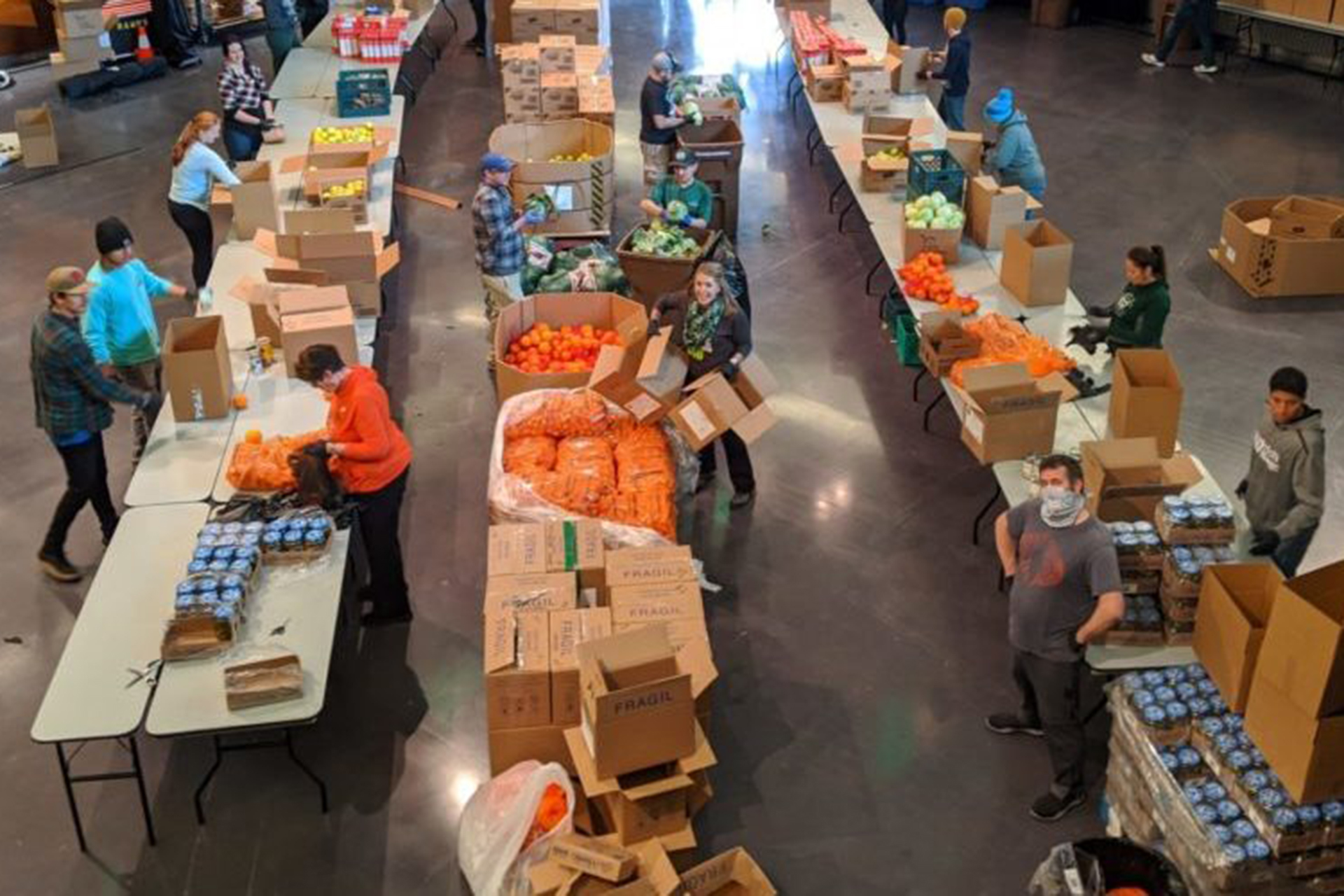
The on-campus food pantry is just one of the programs that led to Colorado State University being one of the first institutions of higher education to the recognized with Hunger Free and Healthy Minds designations from the Colorado Department of Higher Education. Pre-pandemic photo
The Colorado Department of Higher Education announced June 21 that four institutions of higher education – Colorado State University, Colorado State University Pueblo, Fort Lewis College, and Metropolitan State University of Denver – have earned Hunger Free and Healthy Minds designations for their work to end hunger and address the mental health needs of their students.
This comes after the release of the Department’s Hunger Free and Healthy Minds Campus Checklists to encourage the state’s postsecondary intuitions of higher education to apply for Hunger Free and Healthy Minds campus designations. Colorado colleges and universities used the checklists to implement four core programs and six focused initiatives to receive a Hunger Free or Healthy Minds designation.
“It’s so important that Colorado higher-education institutions in Pueblo, Fort Collins, Durango, and Denver are stepping up to help their students and communities and we encourage others to do the same,” said Gov. Jared Polis. “Colorado is breaking down barriers and stigmas and making it easier for students to focus on learning by working to erase hunger and provide mental health services.”
“We are proud to be included among the Colorado Department of Higher Education’s first cohort of institutions to receive Hunger Free and Healthy Minds designations,” CSU President Joyce McConnell said. “This is a reflection of the impactful work done by our dedicated employees to support our campus community. Moreover, it is a reflection that we, as a university, embrace our role to address food insecurity and support mental health resources for our students. I want people here at CSU to know the resources are here for them and encourage them to utilize these. Asking for help when its needed is a sign of strength.”
Programs in place
The four campuses receiving a Hunger Free designation all operate food pantries, provide Supplemental Nutrition Assistance Program (SNAP) enrollment assistance, hold at least one food security awareness event per year, and collect and report data on student food insecurity.
At CSU, Rams Against Hunger – operating from the office of Student Leadership, Involvement and Community Engagement (SLiCE) – offers a menu of services that support students, faculty and staff experiencing food insecurity. Services include a food pantry, a meal-swipe program, pocket pantries, and in-person assistance with navigating federal aid eligibility.
CSU Pueblo implemented an online appointment service for students to schedule a time to visit the Pack Pantry. Their goal is to provide wraparound services for students who visit the Pack Pantry.
This year, Fort Lewis College’s Environmental Center and Gender and Sexuality Resource Center are collaborating with Grub Hub to host “Drag Me to Mother Earth,” a drag show that focuses on sustainability and food security and benefits the campus pantry through donations. Grub Hub will distribute free food at this event.
In addition, the four campuses receiving a Healthy Minds designation all offer multiple mental health programs and include information about mental health resources on course syllabi or on the back of all new student ID cards.
The CSU Health Network offers an array of mental health support resources for CSU students, including a strong partnership with the University’s Social Media Team that provides regular takeovers of the CSU Instagram stories to share mental health-related content. These efforts regularly reach more than 10,000 students.
MSU Denver offers weekly Healthy Pursuits Yoga and Zumba classes free to students. MSU Denver also partners to offer no-charge nutritional counseling to students, faculty and staff, both in person and in a telehealth format.
“We are extremely proud of the four campuses receiving Hunger Free and Healthy Minds designations today,” said Angie Paccione, CDHE executive director. “These campuses are working hard to ensure their students have the necessary supports and resources to be healthy, fulfilled and engaged citizens. They are true Colorado leaders and innovators in this work.”
The state’s master plan for higher education, Colorado Rises, calls for 66% of adults to earn a certificate or degree by 2025. To get there, Colorado must address the barriers to student success some of which are highlighted above.
For more information, visit the CDHE website.
The Colorado Department of Higher Education contributed to this story.